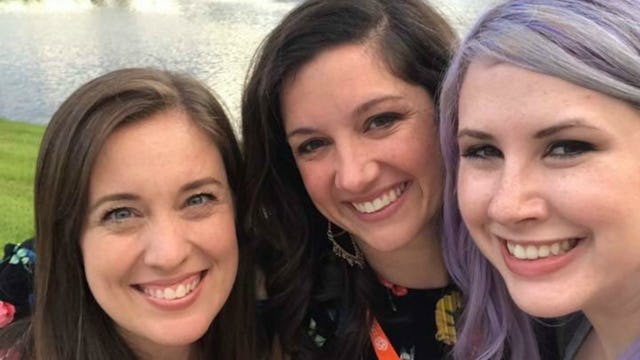Science Has Spoken: Your 'Meanest' Friends Are Probably Keepers

One of my favorite memes on the internet begins like this: “You can’t just cut somebody out of your life!”
Directly beneath that caption is a response that makes me giggle every time: Edward Scissorhands, frenetically cutting away at the hedges.
Chop, chop, y’all!
It’s the ultimate “Oh, yes I can!” imagery, and that’s why it’s so relatable. Every adult on the planet has lived that meme at some point in life, whether we were Edward Scissorhands or the bush. And even though it sucks to think about, you kind of have to laugh.
Because the truth is, some people deserve the proverbial axe.
There are times in life when “hedging” is necessary, and the better you get at it, the happier you will be. But folks, we all need to set those scissors aside for a minute, because a groundbreaking study is here that may have us rethinking who gets to stay or who (Heidi Klum voice) is out.
Psychological scientist Belén López-Pérez hypothesized that some people who insult their friends aren’t necessarily mean-spirited, they just want their friends to benefit in the long run. An interesting idea, and boy, did the research back it up.
As López-Pérez stated, “We have shown that people can be ‘cruel to be kind’ — that is, they may decide to make someone feel worse if this emotion is beneficial for that other person.”
Wait.
You mean that girlfriend who said my butt looked lumpy in my $15 bandage dress was actually — gulp — being a good friend?
*picks up phone to apologize to Samantha*
The study concluded that it is empathy — not jerkiness — that leads our “meanest” friends to do and say the things they believe will help make us successful. This means that even though these friends know we don’t wanna hear about lumpy butts, their biggest concern may be that we rock the dance floor looking our very best: black miniskirt, no butt lumps, you get the idea.
Sounds like The Plastics got a bad rap, no?
Well, let’s not take it that far.
López-Pérez continued, “People hold very specific expectations about the effects that certain emotions may have and about which emotions may be better for achieving different goals.”
Let me simplify: The important difference between Regina George and your Bitchy BFF is simply this: their goals. Samantha didn’t shut down my red dress to make me feel insecure. She shut it down because she knew that when I put on that black miniskirt, I would look my best, feel my best, and have a blast.
If a friend hurts your feelings for the sake of hurting your feelings, they aren’t truly your friend. In those circumstances, I highly recommend busting out your very best Scissorhands and getting to work.
But if you have a friend who is willing to speak the hard truth everyone else tiptoes around? Well, I suggest that you may just have a keeper. Nobody benefits from having a “yes (wo)man.” Sure, it may be more comfortable to keep people around who constantly agree with you, compliment your clothes, and edit their opinions to avoid conflict. But where does that leave you?
I’ll tell you where: smack-dab in the middle of the dance floor wearing a bandage dress.
And if you don’t believe me, believe science.
Because the geniuses at the University of Plymouth have stepped up and proven what we probably should have suspected all along: The folks who are willing to give it to us straight are the ones who care the most.
Our “meanest” (most honest) friends are worth keeping, folks.
Set those scissors aside for another day.